See also
- East Jesus Nowhere, a song by Green Day
East Jesus may refer to:

A bridge to nowhere is a bridge where one or both ends are broken, incomplete, or unconnected to any roads. If it is an overpass or an interchange, the term overpass to nowhere or interchange to nowhere may be used respectively. There are five main origins for these bridges:

Intercession of the Saints is a Christian doctrine held by the Eastern Orthodox, Oriental Orthodox, Assyrian Church of the East and Catholic churches, and some Anglicans. The practice of praying through saints can be found in Christian writings from the 3rd century onward.
Nowhere may refer to:
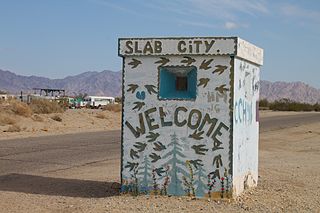
Slab City, also called The Slabs, is an unincorporated, off-the-grid alternative lifestyle community consisting largely of snowbirds in the Salton Trough area of the Sonoran Desert, in Imperial County, California. It took its name from concrete slabs that remained after the World War II Marine Corps Camp Dunlap training camp was torn down. Slab City is known for attracting people who want to live outside mainstream society.
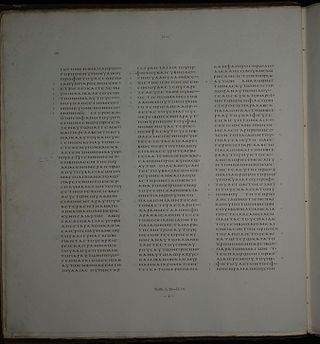
Matthew 2 is the second chapter of the Gospel of Matthew in the New Testament. It describes the events after the birth of Jesus, the visit of the magi and the attempt by King Herod to kill the infant messiah, Joseph and his family's flight into Egypt, and their later return to live in Israel, settling in Nazareth.
So What may refer to:
Jessie may refer to:
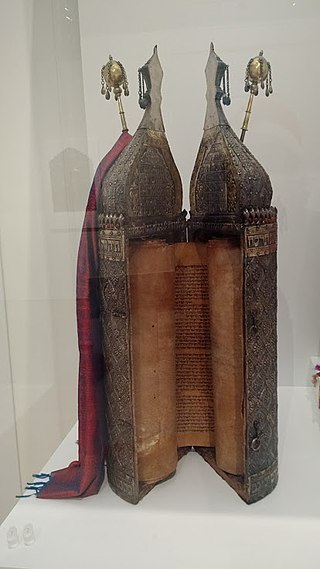
The Tawrat, also romanized as Tawrah or Taurat, is the Arabic-language name for the Torah within its context as an Islamic holy book believed by Muslims to have been given by God to the prophets and messengers amongst the Children of Israel. In the Qur'an, the word 'Tawrat' occurs eighteen times. When referring to traditions from the Tawrat, Muslims have not only identified it with the Pentateuch, but also with the other books of the Hebrew Bible as well as with Talmudic and Midrashim writings.
Indeed, We sent down the Torah, in which was guidance and light. The prophets who submitted [to God] judged by it for the Jews, as did the rabbis and scholars by that with which they were entrusted of the Scripture of God, and they were witnesses thereto. So do not fear the people but fear Me, and do not exchange My verses for a small price [i.e., worldly gain]. And whoever does not judge by what God has revealed - then it is those who are the disbelievers.
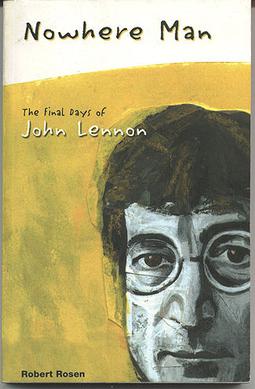
Nowhere Man: The Final Days of John Lennon, first published in 2000 and written by New York journalist Robert Rosen, who in 1981 had access to John Lennon's diaries, is a controversial account of the ex-Beatle's last five years. Rosen says in the book's first chapter, "John Lennon's Diaries," that he used his memory of Lennon's diaries as "a roadmap to the truth." The title of the book refers to The Beatles' song "Nowhere Man".
Nowhere Man may refer to:
John 9 is the ninth chapter of the Gospel of John in the New Testament of the Christian Bible. It maintains the previous chapter's theme "Jesus is light", recording the healing of a man who had been blind from birth, a miracle performed by Jesus, and their subsequent dealings with the Pharisees. The man born blind comes to complete faith in Jesus, while some of the Pharisees remain in their sin. The author of the book containing this chapter is anonymous, but early Christian tradition uniformly affirmed that John composed this Gospel.

Matthew 27:11 is the eleventh verse of the twenty-seventh chapter of the Gospel of Matthew in the New Testament. This verse brings the narrative back to Pilate's Court, and the final trial of Jesus.
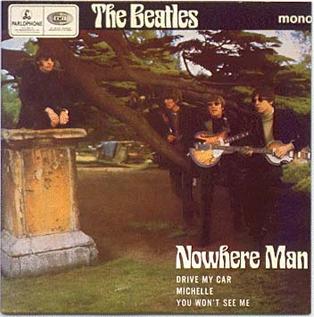
Nowhere Man is the 12th extended play (EP) by the English rock band the Beatles. It was released on 8 July 1966. It includes four songs from their album Rubber Soul, which had been released in December 1965. The EP was only issued in mono, with the Parlophone catalogue number GEP 8952.
A woman is an adult female human.
Middle of Nowhere may refer to:
Jaroslav Vajda was an American hymnist.

"East Jesus Nowhere" is a song by American rock band Green Day. The single was released on October 19, 2009, as the third single and eighth track from their eighth album 21st Century Breakdown. The title is derived from a phrase in the 2007 film Juno.
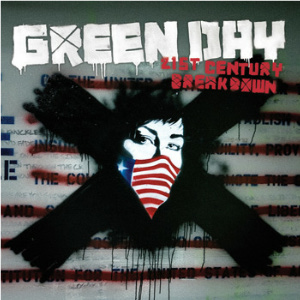
"21st Century Breakdown" is a song by American rock band Green Day from their album of the same name. Billie Joe Armstrong composed the song, which is mainly based on his personal life and musical influences. The song was released as the fourth single from the album on December 21, 2009.

Underwater Sunshine (Or What We Did on Our Summer Vacation) is the sixth studio album by American rock band Counting Crows, released on April 10, 2012, on Cooking Vinyl. The album is composed of cover songs, with vocalist Adam Duritz stating, "Sometimes it's great to play someone else's music and try to make it your own. Sometimes it's great just because it's fun."

The gospels demonstrate the homelessness of Jesus lasting for the entirety of his public ministry. He left the economic security he had as an artisan and the reciprocity he had with his family and wandered Palestine depending on charity. Many of the people on whom he depended for charity were women. Because his ministry took place in the vicinity of his disciples' hometowns, it is likely that the group often slept at the homes of the disciples' family members.